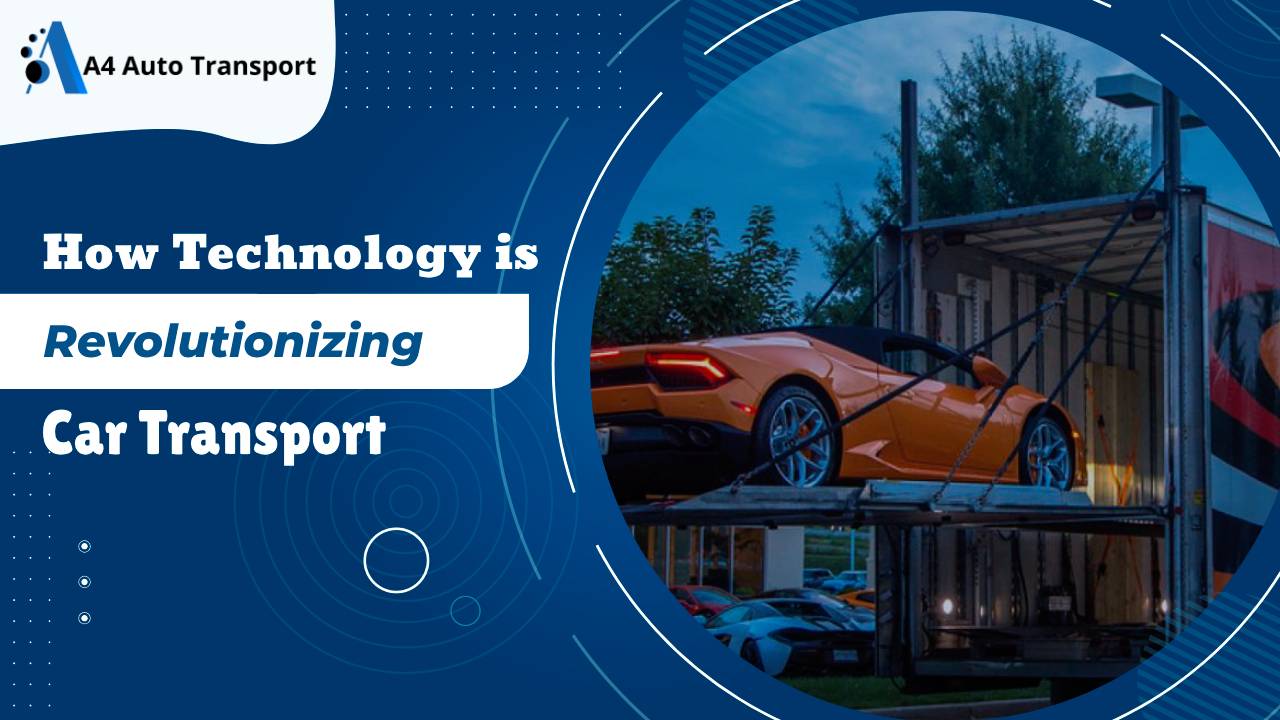How Technology is Revolutionizing Car Transport

The American auto industry is a well-oiled machine, with millions of cars crisscrossing the country each year. But how are these vehicles transported from the factory to the showroom or from one coast to another for a new owner? The answer lies in the rapidly evolving world of car shipping, a sector being revolutionized by technological advancements.
Important Points
- Tech Revolution in Car Shipping: Online platforms, real-time tracking, and route optimization are transforming car shipping in the US, making it faster, more transparent, and customer-centric.
- Benefits for the Auto Industry: Technology in car shipping leads to increased efficiency, reduced costs, enhanced transparency, and improved customer satisfaction within the US auto industry.
- The Future of Car Shipping: Autonomous vehicles and AI have the potential to further revolutionize car shipping, offering unparalleled efficiency and personalized service. Picture Credit Goes to AutoStar Transport Express.
In the past, car shipping in the US relied heavily on manual processes, phone calls, and limited tracking capabilities. Today, the landscape is drastically different. Let’s delve into the key ways technology is changing the car shipping industry, making it more efficient, transparent, and customer-centric.
Enhanced Fleet Management for Carriers
Car shipping companies are benefiting from technological advancements in fleet management. Software solutions now allow companies to track the location and status of their trucks in real time, improving communication with drivers, scheduling, and maintenance practices. Electronic Logging Devices (ELDs) also ensure compliance with federal regulations regarding driver hours-of-service, promoting safety and reducing fatigue-related accidents.
Streamlined Booking and Communication
Online platforms and mobile apps have revolutionized the car shipping process, eliminating the need for endless phone calls and paperwork. Users can now get instant quotes, compare prices from different carriers, and book their shipments entirely online. These user-friendly interfaces accept vehicle details, pick-up and delivery locations, and offer options for enclosed or open transport.
Real-Time Tracking and Transparency
Thanks to GPS technology, customers can now track their vehicle’s location in real-time, receiving updates via email, text message, or mobile app. This transparency fosters trust and reduces anxieties associated with car shipping transport.
Improved Route Optimization and Efficiency
Advanced software analyzes factors like weather conditions, traffic patterns, and fuel efficiency to create the most efficient routes for car carriers. This results in faster delivery times, reduced fuel consumption, and a more sustainable car shipping process.
The Rise of Blockchain and Secure Transactions
The car shipping industry is increasingly embracing blockchain technology, which offers a secure digital ledger system to streamline paperwork, track shipment documents, and ensure the authenticity of transactions. This can significantly reduce fraud and errors, enhancing the overall experience.
The Future: Autonomous Vehicles and AI
The concept of autonomous vehicles holds great potential for revolutionizing car shipping. Self-driving car carriers could traverse the country, optimizing routes and delivering vehicles with unparalleled efficiency. Additionally, Artificial Intelligence (AI) could further enhance the car shipping experience by offering predictive maintenance for car carriers and providing personalized customer service experiences through chatbots.
Benefits for the Auto Industry
Technological advancements in car shipping bring numerous benefits to the auto industry:
- Increased Efficiency: Faster delivery times, optimized routes, and streamlined processes create a more efficient car shipping ecosystem.
- Reduced Costs: Optimized routes and improved fleet management can potentially lower overall shipping costs.
- Enhanced Transparency: Real-time tracking and improved communication provide greater transparency for both car dealerships and individual consumers.
- Improved Customer Satisfaction: A smoother, more efficient shipping process with clear communication leads to happier customers, both for dealerships and individual shippers.
Conclusion
The car shipping industry in the US is undergoing a significant transformation fueled by cutting-edge technology. From streamlined booking to real-time tracking and the potential of autonomous vehicles, the future promises a more efficient, transparent, and customer-centric car shipping experience. By embracing these advancements, the US auto industry can ensure the smooth flow of vehicles across the country, keeping the wheels of commerce turning.

a4AutoTransport is a group of auto transport researchers and experts that comes in handy for anyone who wants to move their car/vehicle without putting extra miles on the odometer. At a4AutoTransport, We researched over a hundred car shipping companies, interviewed real customers and industry leaders, and collected nearly 500 quotes to find the nation’s best auto transport companies. With our combined 5 years of industry experience and research, we’ll help you find the right car shipper for your budget.
